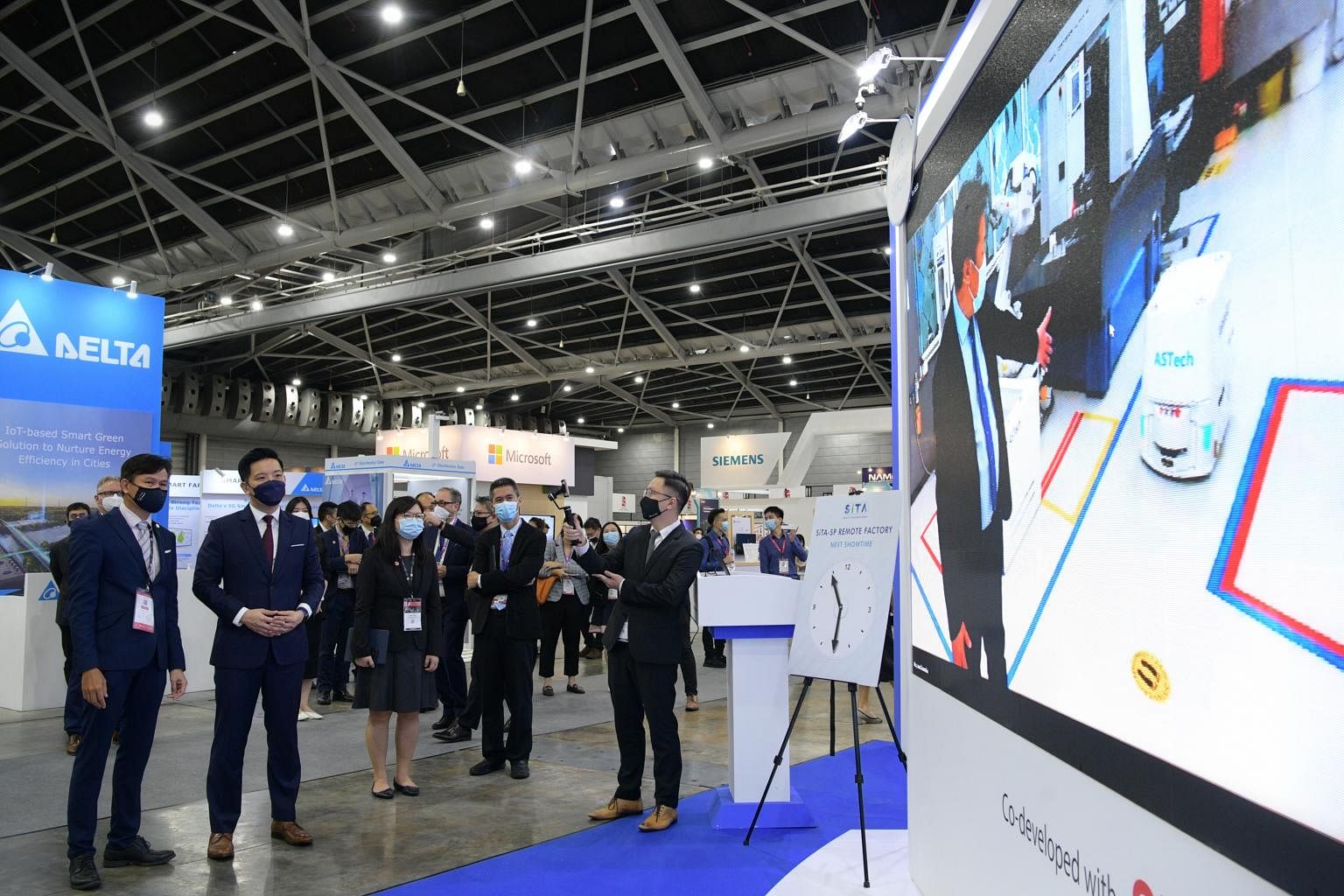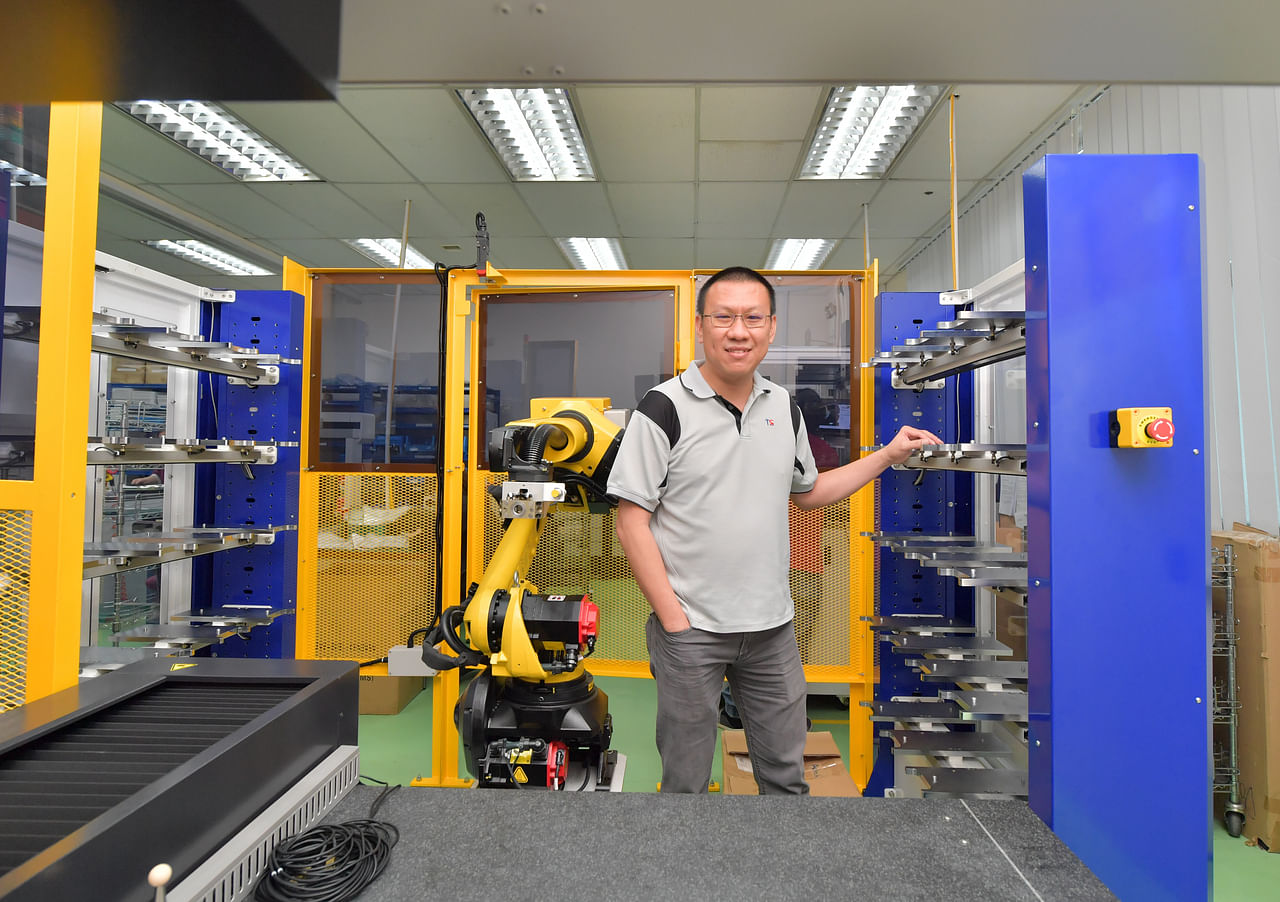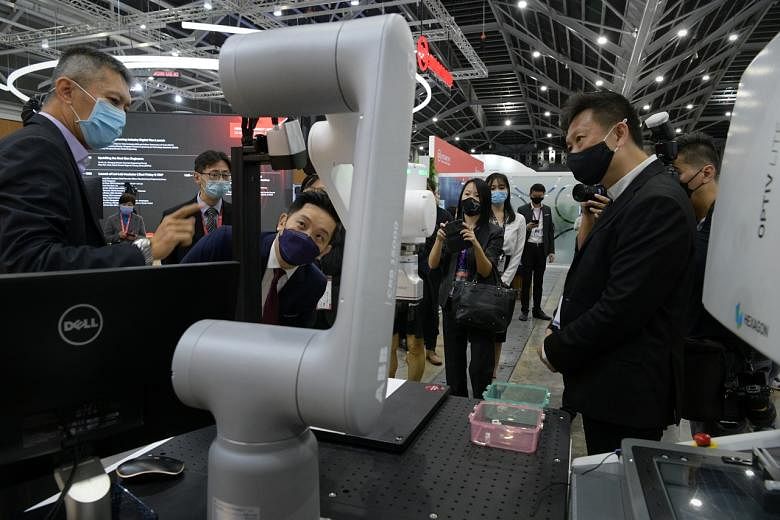SINGAPORE - A new plan that helps small and medium-sized enterprises (SMEs) in precision engineering figure out what digital solutions could help them at different points of their business growth was launched on Tuesday (Nov 23).
Called the Precision Engineering Industry Digital Plan, it also offers these companies a road map of the training programmes available to help their employees pick up relevant skills as the companies digitalise in stages.
These efforts are expected to benefit about 2,700 businesses and 101,000 employees in the industry, which plays a key role in manufacturing processes by supplying very accurately designed and developed machines, parts and components.
The plan was announced by Mr Alvin Tan, Minister of State for Trade and Industry, on the second day of the Industrial Transformation Asia-Pacific (Itap) 2021 event held at the Singapore Expo.
He said that despite the supply chain challenges and disruption to manufacturing activities caused by the Covid-19 pandemic, the precision engineering industry has grown and remains important to the country, contributing about $40 billion to Singapore's gross domestic product.
"But as the industry strives to maintain its global competitiveness, it's very important that we continue to adopt digitalisation and different platforms," said Mr Tan, who is also Minister of State for Culture, Community and Youth.
He cited how digitalisation helps companies better manage manpower constraints and productivity, particularly during the Covid-19 crisis.
And because of manpower shortages, digitalisation can help them build production capabilities, access new markets, as well as design interesting and new products and services.
Recognising that companies may not be familiar or comfortable with technology or digitalisation, Enterprise Singapore (ESG) and the Infocomm Media Development Authority (IMDA) developed the Precision Engineering Industry Digital Plan as part of the Government's SMEs Go Digital initiative.
The plan provides a step-by-step guide to help SMEs find digital solutions based on their stage of growth, so that the process is broken up into more bite-size chunks and is less intimidating.
For companies in what has been dubbed Stage 1, the plan looks into getting them ready for the digital economy and lists basic digital solutions to help the SMEs streamline and integrate business operations to improve efficiency, such as using automated robots.
These could help enterprises cut down on human errors and enable employees to focus on higher-value work such as developing new and better-quality products for customers.

For Stage 2 companies, which are ready to scale up their digital transformation efforts, the plan offers solutions that will enable them to integrate their workflow and production processes.
They include having predictive maintenance systems for equipment that can help companies track and forecast the performance of their machines. With this, companies can detect possible machine problems early, reduce maintenance costs and cut back the need to stock additional spare parts.
And for companies in Stage 3, the plan identifies advanced technologies that SMEs can use to manufacture in a smart way. They include using autonomous robots to automate a huge number of repetitive tasks like assembling product components, as well as lifting and moving heavy items.
This reduces error and the risk of workplace accidents while allowing employees the chance to take on higher-value roles.
Under the industry digital plan, companies can also use an online checklist to assess how digitally ready they are and identify gaps in their digital capabilities.
To help companies with adopting digital solutions, SMEs can consider pre-approved solutions under the digital plan listed at the GoBusiness Gov Assist website. These pre-approved solutions are eligible for the Government's Productivity Solutions Grant, which provides co-funding of up to 80 per cent until March 31 next year.
For local precision engineering firm Onn Wah Tech, digitalisation and automation over the years have helped it do more with the same staff strength of around 50.

Chief strategy officer Mok Hon Yong said the company's revenue per employee jumped from $100,000 in 2014 to $300,000 this year, due to efforts to go digital.
For instance, the firm realised there were bottlenecks caused by labour-intensive and time-consuming processes when assembling components. Previously, employees had to insert small pins into plates that Onn Wah Tech supplies to customers to make semiconductor chips.
Now, the process is done by a pin-insertion machine.
Onn Wah Tech also set up a "black box" system that can keep track of logs of when the machines are being used and by who. Previously, such data was manually recorded and manual checks had to be done by employees.
If an urgent customer request comes in, employees can use the black box data about the machines to replan their workloads, such as diverting machines to fulfil the new request. Without the machine data, the replanning process would take a lot more time.
This machine monitoring can also be done remotely, which becomes crucial when employees have to work from home due to Covid-19.
"We realised the importance of this during the pandemic, especially last year, when we were restricted on the number of employees who could report to work. So this (black box) helped us a lot," said Dr Mok.
For more details on the Precision Engineering Industry Digital Plan, such as the online checklist and training road map, go to this website.


